January 20, 2015
2014-2015 Magnuson Scholar Updates
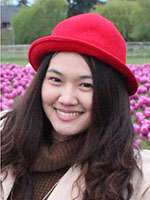 Worakanya Buranaphatthana
Worakanya Buranaphatthana
School of Dentistry
I am honored to have been awarded the Warren G. Magnuson Scholarship for the 2014-2015 academic year at University of Washington. Thank you for your generosity in providing this scholarship.
I am a third year PhD student in Oral Biology working with Dr. Cecilia Giachelli, Professor and Acting Chair of Bioengineering. By awarding me the Magnuson Scholarship, I was able to focus on my studies and put all my energy into my research. My research focuses on the inducible control of osteoclast differentiation as an engineered cell therapy for heterotopic ossification, a type of ectopic calcification which can occur in various body sites including the oral cavity. My studies show that engineered osteoclasts have a contact-independent ability to prevent mineralization by secreting soluble factors. I am currently preparing a first author manuscript detailing these studies. Moreover, I will present this study at the 2015 Biomedical Engineering Society meeting in October. I love to attend conferences since I enjoy presenting my work, traveling to different places, and meeting and networking with other researchers. I wish to continue to do so in the future. This scholarship has helped me a great deal with the pursuit of obtaining my academic goals. It has provided me help in paying for books, publication fees, and costs associated with attending conferences. Moreover, it will support my future independent career profession. After completing my PhD studies, I plan to work as a postdoctoral researcher to further develop my independent research skills and to create research collaborations. My long-term goal is to bring my knowledge and research expertise back to further my work as a lecturer and researcher at the Faculty of Dentistry at Chiang Mai University.
Thanks to your generous support, I feel that I am one step closer to achieving my goals. This award is very meaningful not only financially, but emotionally as well, as it has strengthened my belief in myself. Your support will go a long way in helping me to achieve my educational and career goals.
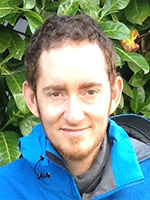 Patrick Sanger
Patrick Sanger
School of Medicine
The Magnuson Scholarship has supported me in what I intend to be my final year of PhD work in Biomedical & Health Informatics. Since the beginning of the year, I have had my first two papers published. The first, titled “Patient perspectives on post-discharge surgical site infections: towards a patient-centered mobile health solution” was published in PLOS One and explores the many challenges patients face communicating about wound complications after hospital discharge. The second paper, which I orally presented at the American Medical Informatics Association Annual Symposium, “Design Considerations for Post-Acute Care mHealth: Patient Perspectives” was published in AMIA Proceedings and is aimed at informing the design of mobile health applications intended for use by patients following major hospitalization. I am currently working on a paper for submission to the Journal of the American Medical Informatics Association tentatively titled “Challenges of being patient-centered in a provider-centric world: design of a post-discharge surgical wound monitoring tool” which explores the tensions that arise when designing a tool that must be acceptable to both patients and providers. I also recently had an abstract accepted at the Surgical Infection Society titled “Developing an SSI risk score incorporating daily objective wound assessments using machine learning”; this work represents a new line of inquiry for me and has given me an opportunity to learn more about machine learning methods and initiate collaboration with investigators in Computer Science. Our goal is to incorporate a small number of objective daily wound observations to automatically predict development of imminent wound infection—and we’ve had very encouraging initial results. Other than working on papers, I was selected as one of eight younger researchers at UW Medicine to compete for the Emerging Inventor of the Year Award. I presented a poster and a one-minute pitch at the event.
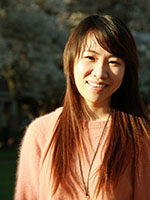 Weichao Yuwen
Weichao Yuwen
School of Nursing
I am currently a forth year PhD candidate, and I will be conducting my dissertation study this year. The overall purpose of my dissertation is to gain new knowledge about the interrelations among parent-child sleep patterns, sleep disturbances, and family functioning (cohesion and adaptability) in 2 to 5 year- old children newly diagnosed with juvenile idiopathic arthritis (JIA), compared to their peers without this chronic condition, and how parents manage children newly diagnosed with JIA. The dissertation will include a mixed method approach. The qualitative study will describe how parents manage children newly diagnosed with JIA. I will interview parents and describe parents’ perceived stress, illness-related challenges, coping behaviors, and adaptation to the stress and challenges when their child is newly diagnosed with JIA. The quantitative study is a secondary analysis that will examine sleep patterns and sleep disturbances in children newly diagnosed with JIA and their parents, to a comparison group of children without JIA and their parents, and to examine the associations between disturbed sleep and family functioning among these families. I will use part of the Magnuson award to support my study.
I am also pursuing a statistical concentration through the UW Center for Statistics and the Social Sciences. I am learning advanced analytical methods such as multilevel modeling, structural equation modeling, and maximum likelihood estimation. The Magnuson award has supported me significantly with tuition so that I was able to pursue this statistical concentration to further help me learn and grow in research.
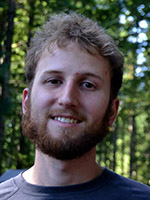 Ryan Patrick Seguin
Ryan Patrick Seguin
School of Pharmacy
During my first six months as a Magnuson Scholar, I have had many opportunities to grow professionally and expand on my research endeavors. During a 3-month internship at the local Seattle biotechnology company Amgen, I investigated alternative mechanisms of drug clearance in the presence of plasma binding proteins. At the UW School of Pharmacy’s annual Corporate Advisory Board Meeting, I presented new research and interfaced with leaders in the pharmaceutical industry. I then traveled to San Francisco to participate in the International and Japanese Societies for the Study of Xenobiotics (ISSX/JSSX) joint meeting. I heard many interesting and stimulating talks from experts in various fields of drug metabolism, drug development, and toxicology. At ISSX, I presented a poster on my research relating to drug-drug interactions involving the commonly-prescribed antibiotic class, fluoroquinolones. Currently, I am preparing a manuscript for publication which will elaborate on how members from this drug class precipitate drug-drug interactions and the structural basis for why this occurs. I am also preparing a poster abstract for presentation at the upcoming International Conference on Cytochrome P450 which will take place in Tokyo in June. I hope to receive valuable feedback on a new research project involving metabolism of alkylamines, a pharmacologically important class of drugs.
Support from the Magnuson award has enabled me to take full advantage of these opportunities. I have used my funds to pay for membership to professional organizations as well as conference registration and travel fees. Exposure to a broad array of research and the ability to network with scientists both from within and outside of my area of expertise helps me grow and fuels my curiosity. In particular, I enjoy talking to others who work on topics unfamiliar to me. In these instances I learn a great deal while also gaining confidence that I can engage in multidisciplinary discussions and spot connections between different areas of research. I believe this skill set is becoming increasingly valuable in our changing research environment. As an additional perk, traveling to conferences provides me with a great opportunity to seek out potential post-doctoral positions and draw a road map for my career in the sciences. I look forward to the conversations I will have in Tokyo and I feel fortunate to have the support of the Magnuson scholarship in pursuing a career in science.
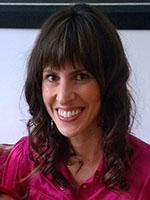 Christine Khosropour
Christine Khosropour
School of Public Health
The Magnuson Scholarship has been instrumental in supporting my work over the past several months. Since receiving the Magnuson award, I have made extensive progress on my dissertation as well as ancillary projects that I have pursued while my dissertation data collection is underway.
To date, we have enrolled >3,300 men who have sex with men (MSM) in my dissertation research study, the goal of which is to understand the association between sexual behaviors and HIV/STI risk. Recently we expanded recruitment to Gay City Health Project, a community-based HIV/STI testing center in Seattle. I have been instrumental in initiating the computer-based data collection system at Gay City, which will now be used for routine clinical data collection as well as for the research study. In addition to my dissertation work, I have continued to serve as the data manger for a large clinical trial examining therapies for the treatment of male urethral infections. I have also had the opportunity to design the data collection instruments used in the PHSKC PrEP clinic. PrEP (pre-exposure prophylaxis) is a daily medication for HIV-negative persons to prevent the acquisition of HIV. There are a number of outstanding clinical and research questions regarding the uptake and use of PrEP among MSM and it is exciting to be on the forefront of this field.
As a result of the aforementioned work, I have completed two manuscripts (one published and one in press) and one commissioned editorial (in press); two additional manuscripts are in progress. I presented my research at the 2014 National STD Prevention Conference and will be presenting at CROI 2015 (an international HIV conference) in February. In October 2014 I was asked to speak about my work at the annual HIV & STD Research Symposium at the University of Washington and was asked to serve as a junior faculty member of F1000 prime, a post-publication peer review service. I was also recently notified that I am a recipient of the CROI 2015 Young Investigator Award.
In summary, my work in the past 6 months has continued to bridge the clinical and research aspects of HIV/STI prevention. This work has not only broadened my epidemiologic skills, but it has also fostered my professional growth, as I have forged new partnerships with community-based organizations and have continued my collaborations with PHSKC and UW. I look forward to continuing these projects, and initiating new ones, in the coming months.
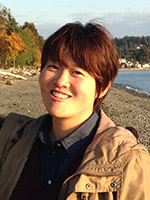 Ciwang Teyra (Mei-Yi Lee)
Ciwang Teyra (Mei-Yi Lee)
School of Social Work
The critical importance of indigenous health, wellbeing and resilience is at the core of my academic and career interests as an indigenous doctoral student in Social Welfare at the University of Washington. My research interests in indigenous health disparities are inspired and informed by my experiences as an indigenous woman born in the Truku Nation of Taiwan. Similar to many international indigenous communities, health disparities are not surprising for Taiwanese indigenous peoples in terms of their exposure to a history of colonial oppression, associated historical trauma and ongoing social, political and economic marginalization and disadvantage. Although facing numerous challenges, indigenous peoples have shown remarkable strengths, resiliency, and positive health outcomes. My research interests particularly focus on identifying and understanding existing resilience factors that can promote indigenous healthful outcomes despite exposure to both historical and ongoing trauma.
The topic of my qualifying paper for general exam discussed indigenous cultural strengths as important protective mechanism that can promote healthy communities for indigenous peoples. With the support of the Magnuson Scholarship, I was able to engage in and concentrate on my scholarly work and advanced to doctoral candidacy in the past year. In addition, the Magnuson Scholarship has been facilitating the achievement of my scholarly growth by providing the flexibility for me to disseminate my work at both national and international conferences.